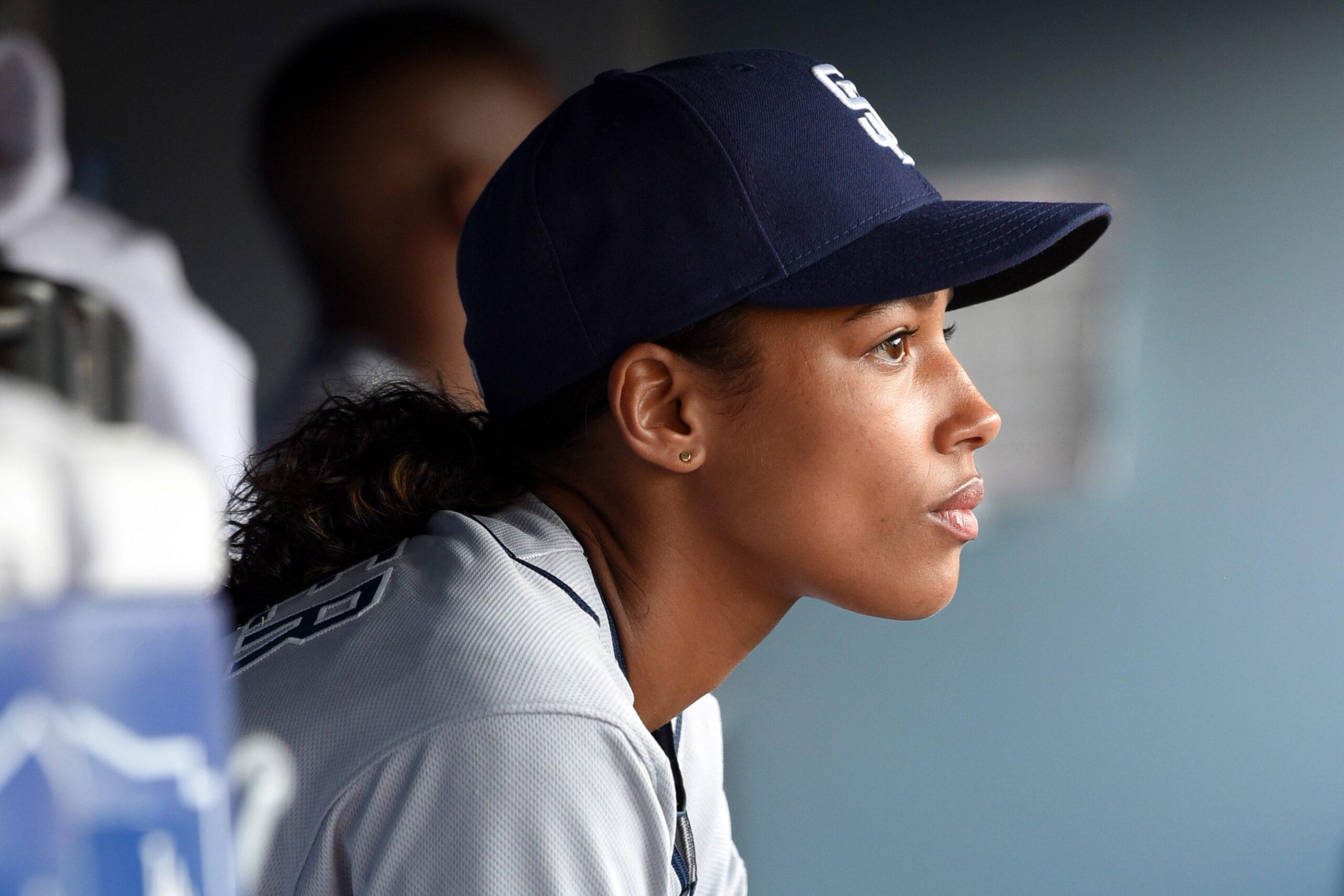
After the second presidential debate, I did what pretty much everyone does when real life proves too depressing to acknowledge: I turned to television.
Specifically, I fired up Hulu and caught up on Pitch, the brand-new Fox drama centered on Ginny Baker (Kylie Bunbury), the first female player in Major League Baseball. Pitch is cocreated and co–executive produced by screenwriter Dan Fogelman, who also spearheaded NBC megahit This Is Us. The connection makes sense, because Pitch is in many ways the show This Is Us is straining to be: an honest-to-goodness tearjerker lightened with enough jokes to keep it from sinking into molasses. Unfortunately, that dynamic reverses itself when it comes to ratings: This Is Us racked up a zillion views with a trailer and is soaring ratingswise, while Pitch started low and has only sunk since.
At the time, I couldn’t explain why I went with Pitch and not any of the dozen other new shows on the air. It was just an instinct, and when the only alternative is watching talking heads argue whether blatant stalking constitutes a winning debate strategy, you don’t really think about the choice. Slowly, though, it dawned on me: Pitch isn’t just precision-engineered comfort TV. It’s comfort TV almost uncannily well suited to this stupendously uncomfortable election.
For the vast tracts of America threatened by the prospect of a Trump presidency, the past year has been a nonstop bombardment of racism, Islamophobia, and misogyny, spewed out around the clock from the national stage. At least-worst, it’s nauseating. At worst-worst, it’s kind of traumatizing. There’s no escape — constant and barely veiled dismissals of our humanity are now a basic feature of our politics. It’s a depth of depravity that makes avoiding the madness impossible — and most attempts to address it inadequate.
Pitch doesn’t quite ignore this state of affairs, but it doesn’t clumsily discuss it, either. Instead, it’s simply … reflecting it. This is a show about being a woman in public, airing in a moment when the question of what it means to be a woman in public has never been more central to our national discourse. Its answer to that question is also a lot more encouraging than the one we’re getting in real life. And it’s notable that it even offers an answer when the no-win lockbox of IRL sexism doesn’t seem to have one.
Baseball obviously figures heavily in Pitch, but the show is admirably pragmatic about what signing with the San Diego Padres means for Ginny. As much as she insists otherwise, Ginny is more than a ballplayer: She’s a celebrity, and a walking symbol for the team, the public, and Ginny herself to use as they see fit. The team’s owner (Bob Balaban) is transparent about using Ginny’s novelty to boost ticket sales. Ginny’s agent (Ali Larter) typically works with entertainers, not athletes, and announces her intentions to turn Ginny into one. And fans, most of them young girls, show up in droves to cheer her on. It’s not just because of her screwball.
Much of Pitch’s conflict comes from Ginny’s struggle to balance her public profile with her profession. All Ginny’s ever wanted is to make it to the big leagues, but she’s much less prepared for the scrutiny that comes with the job than the job itself. Sound familiar? She makes awkward talk show appearances. (Check.) She has to keep her private life rigidly disciplined while her teammates are free to sleep around. (Yep.) She’s forced to respond to boorish comments from a male colleague. (Surely you see the pattern.) It’s all too familiar, and yet not depressingly so.
That’s because Pitch glosses its realism with a shiny coat of optimism. Earlier this year, showrunner Kevin Falls sold the show as “The West Wing in baseball,” an influence that makes itself felt from the jump. Pitch’s dialogue isn’t Aaron Sorkin–dense, but the banter is built on the premise and chemistry of talented coworkers who fundamentally like each other. By the third episode, Ginny and her once-resentful teammates are already broing out, and intraoffice hook-ups and love triangles are entering the dynamic. But The West Wing’s presence goes deeper than style. Like the show it’s emulating, Pitch takes place in a version of reality that’s almost identical to yet unmistakably better than the world it’s based on. Pitch’s Major League Baseball is the Bartlet White House all over again: smarter, smoother, and altogether nicer than the genuine article.
Sometimes Pitch leaves out a little too much of the real world; Ginny’s race (she’s black) doesn’t set her apart from her colleagues as much as her gender, but it goes strangely unmentioned, even as other characters directly compare her to Jackie Robinson. For the most part, though, the show lets in just enough harsh reality to offer the closure our lived experience so often doesn’t.
In essence, Pitch offers a parallel version of America in 2016 with parallel problems — except on Pitch, those problems are manageable enough to resolve each week instead of congealing into a fiery tumbleweed headed straight for November 8. Ginny aces her talk show appearance, wins over her coach, and excels on the field. We watch her face the same challenges as her counterparts: Hillary Clinton, yes, but also any woman in the public eye, which is to say most women. Not all of us have run for office; all of us have had to worry how our actions, from our outfit to our tone of voice, will be perceived by or measured against our male peers. But unlike us, Ginny surpasses those roadblocks as easily as we wish we could. It’s television as wishful thinking and wish fulfillment, all at once.